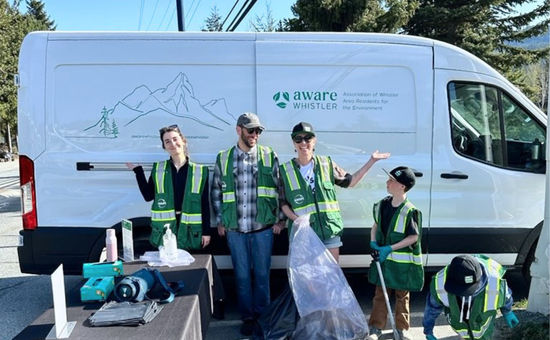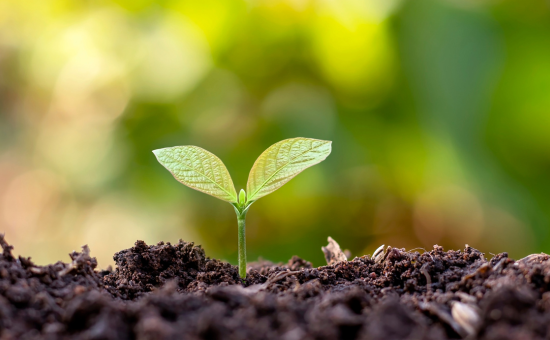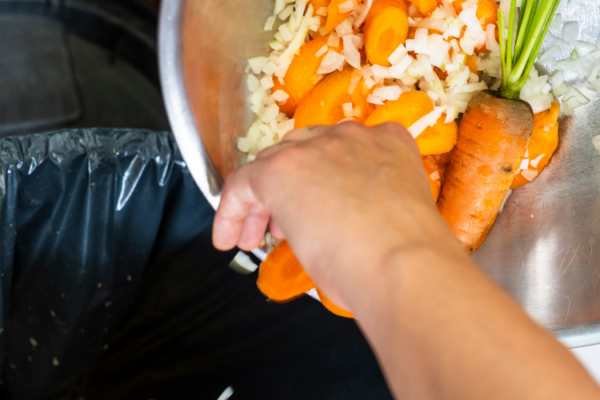Small Steps, Big Difference: Why Food Waste Action Matters
Written by: Alexandra Cuschieri, Zero Waste Campaign Coordinator
Imagine a farmer rising before dawn to tend crops that take months of care, water, and resources to grow. After traveling vast distances and sitting on store shelves, that food finally reaches our kitchens – only to be forgotten and tossed in the trash. Every time we waste food, we waste all the energy, water, and land that went into producing it.
And when food waste ends up in landfills, it doesn’t just disappear, it releases methane, a powerful greenhouse gas. Shockingly, food waste produces almost five times more greenhouse gas emissions than the entire aviation industry.
The good news? Reducing food waste is one of the easiest and most impactful ways to take immediate climate action.
Food Waste in Whistler
Whistler is fortunate to have a closed-loop composting system. Household food waste is transformed into nutrient-rich compost that supports local agriculture. Yet, nearly 26% of Whistler’s compostable organic waste is still destined for landfill.
On top of this, 20% of household food waste is entirely avoidable; perfectly good food that was never eaten. We’re talking about untouched leftovers, over-purchased groceries, and fresh produce that spoiled before it could be enjoyed. This isn’t just scraps; it’s food that could have nourished families or been put to better use.
Food waste isn’t just costing the planet, it’s hitting our wallets, too. The average Canadian household throws away $1,300 worth of food each year, often due to overbuying, improper storage, or forgetting leftovers.
The reality is that we have a tremendous opportunity to do better. By making small, thoughtful changes, we can cut waste, lower emissions, and save money, all while making the most of the food we have.
Small Steps, Big Difference
Here are a few simple steps to take action today:
- Plan Smart – Make a meal plan and stick to a grocery list to buy only what you need.
- Try using a meal-planning app such as Mealime or MealPrepPro, to stay organized.
- Write your shopping list based on what’s already in your fridge to avoid unnecessary purchases.
- Store food correctly – Proper storage techniques extend shelf life and keep food fresher for longer. Here are some ideas:
- Keep herbs in a jar or cup of water (like a bouquet) to maintain freshness.
- Store lettuce leaves in a reusable container with a sheet of paper towel to absorb excess moisture.
- Wash your fresh produce only when you’re ready to use it to prevent premature spoilage.
- Keep bananas separate from other produce, they release ethylene gas, which speeds up ripening.
- Love your leftovers – Get creative with meals using leftover items instead of tossing them.
- Turn last night’s dinner into something new! Leftover roasted veggies? Blend them into a soup or toss them into a grain bowl.
- Transform slightly stale bread into croutons, breadcrumbs, French toast, or even bread pudding.
- Leftover herbs? Chop and freeze them in olive oil or butter for easy cooking later.
- Overripe bananas are perfect for smoothies, baking, or freezing for banana ice cream.
- Compost what you can’t eat – Use Whistler’s composting program to keep organic waste out of the landfill and turn it into nutrient-rich compost. Plus, we’ll be distributing free kitchen caddies, compost guides, and compostable liners throughout the year!
By taking small, simple steps – like planning meals, storing food properly, and composting – we can make a real impact. Follow us on Facebook and Instagram for weekly food-saving tips and easy ways to make your groceries last longer.



